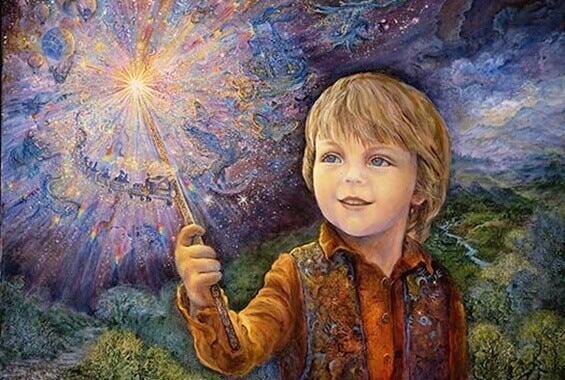The help that humanity needs can only come from children, because they are and will be the ones who will write the future. In every child, humanity is reborn. Therefore, we cannot treat them as second-rate people, because it is in the treatment that we give them where their personality is forged.
It is necessary to take care of the childhood of all children, knowing that in each of them a little humanity is formed, each child is born with kindness, joy, compassion, empathy, but also with hatred, resentment, revenge. They have an obligation to know what to promote to reach adulthood on positive principles.
- Childhood must and must be the sacred age.
- It is important to respond to the need to change the way children are educated.
- As the first few years of life have a great influence on the formation of a person’s character.
Adults tend to educate without understanding the child. We’re just saying something, without fully understanding their behavior. In this sense, we need to identify and respect the child’s feelings and emotions to understand what is happening to him or her.
Sometimes we do not know how to capture or retain the attention of a child and, for example, has not yet developed the bark to record a large number of consultations and follow them, we accuse him and we can even punish him for disobeying, when in fact the error is ours, because we impose too many limits on them or give them several orders in a row.
Emotional self-regulation in adults is critical to children’s education. Keep in mind that depending on how we react to the facts, children also learn what the right reaction is for them. In this sense, it is also necessary to educate yourself. Self-regulation ensures a balance between moderation and permissiveness. In the past we had an excess of limits that did not work well, and now, on the contrary, it seems that we have a deficit that does not work well either.
Limits, at least most, should not be sanctioned or established under the influence of a very strong emotion. It is very important for the child’s education that we be consistent with our words, even if our emotional state sometimes forces us to do something else. Emotions, such as irritation or anger, are not good counselors in setting boundaries or administering punishments.
Early childhood, until the age of three, is like the reserve fund for life, during these years a basis is established for depression, bipolarity and psychosis or, on the contrary, we can acquire skills and forces that protect us from them. You could say that childhood, in that sense, has a sacred character, besides, will it be?The more sacred the age of the child.
Many parents do not begin to pay attention to the development of their children until early adolescence, we talk to parents who give many orders in a row, so do these parents who do not place limits or do not give responsibility to the child until adolescence. It’s paradoxical because it will be difficult to establish something new at this stage if we haven’t started before, because that’s when the rebellion usually begins.
Not only is it necessary to educate children at the normative, cognitive and intellectual level, their emotional growth is very important in order to be able to follow the development of today’s children: those in whom the hope of the future resides, our hope, those in whom humanity is reborn. Whatever children are given, they will return to society.

